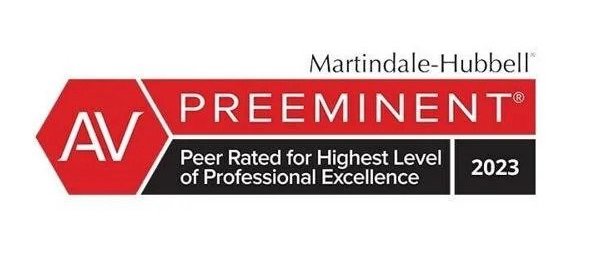
When you’ve suffered an injury on the job and your workers’ compensation claim has been denied or disputed, the next step may be a hearing before the North Carolina Industrial Commission (NCIC). You may feel intimidated by the prospect of attending your hearing and testifying. However, with preparation, support, and a clear understanding of what’s expected of you, you can confidently go into your hearing and make a strong case for your claim’s approval.
Preparing for your workers’ comp hearing means knowing what you’ll need to bring, what you’ll need to do, how to present yourself, and how to utilize the legal guidance available to you. The team at Younce, Vtipil, Baznik & Banks, P.A. is here to help. This guide about how to prepare for a workers’ comp hearing explains what you need to know before entering the NCIC office. However, working with an experienced workers’ comp attorney can make the process much simpler when seeking the benefits you deserve.
What Happens at a Workers’ Comp Hearing?
A workers’ compensation hearing is essentially a trial before a Deputy Commissioner of the NCIC. Hearings can be held when a dispute arises over whether your injury or illness qualifies for benefits under North Carolina’s workers’ compensation laws.
So, what happens at a workers’ comp hearing?
Your hearing will not be as formal as a courtroom trial, but it will follow a structured process. It may be conducted virtually in some cases. You, any legal counsel you retain, your employer, and the insurance company’s lawyer will likely attend. A Deputy Commissioner will hear the case and issue a decision, typically several months after the hearing.
During the hearing, you can expect:
- To provide testimony – You may be asked to testify about how you were injured, what medical treatment you received, and how the injury has impacted your ability to work. An experienced attorney can help prepare you for typical workers’ comp hearing questions.
- To submit evidence – You will have a chance to submit evidence that supports your claim. This can include doctors’ notes, imaging reports, disability evaluations, witness statements, expert testimony, documentation of the incident, and work and wage records.
- Your employer to submit evidence – Your employer or their insurance company may present evidence or testimony to support their position. This can include a supervisor’s or manager’s report regarding the incident, injury report forms you filled out, accident investigation documents, witness testimony, surveillance footage, and medical evidence.
- To answer Deputy Commissioner questions – The Deputy Commissioner must issue a decision after the hearing. They may ask clarifying questions to gather more details and make a fair assessment.
The hearing will be your opportunity to tell your story and prove your claim. It’s critical to have as much evidence as possible and to present your story clearly and truthfully.
Preparing for a Workers’ Compensation Hearing
Your attorney will do much of the work gathering medical records, preparing legal arguments, and presenting witnesses. However, there are some key ways you can personally prepare to make a strong argument for receiving your workers’ comp benefits.
Talk to Your Workers’ Comp Attorney
This will likely be your first workers’ comp hearing, but that’s never the case for an experienced workers’ compensation attorney. They can be your strongest ally throughout this process, handling the legal strategy and explaining your role. When you’re working with your attorney, be sure to:
- Be completely honest. Your attorney needs accurate and complete information to represent you effectively. If you’re not open about your injury, prior medical history, and circumstances at work before and after the injury, you may open the door for your employer or their insurer to make a strong case for your claim’s denial.
- Ask questions. Don’t be afraid to speak up and ask questions when you feel unsure of something. Your attorney can walk you through what you’ll be asked, how to present yourself, and how to handle difficult questions.
- Review your testimony. You and your attorney should review your statement until you feel comfortable explaining how the injury happened and its effects on your life.
Prepare All Your Evidence
Your attorney will formally gather and submit evidence, but there’s much you can do to make sure what is submitted tells the whole story. Evidence you can help collect includes:
- Medical documentation – Share all relevant medical records, test results, physical therapy logs, and doctors’ notes with your attorney. Even small items that can seem unimportant, such as prescription receipts and appointment reminders, can be helpful.
- Work records – Proving how your injury has impacted your ability to earn a living requires thorough documentation of your work history, job duties, evidence of hours missed due to injury, and pay stubs.
- Photos and videos – Visual evidence is often particularly compelling. If you have any pictures or videos of the accident scene or visible injuries, share them with your attorney.
- Witness information – Let your attorney know if any coworkers saw the accident happen or can speak to the nature of your work and how it may have led to injury. Third-party testimony can significantly strengthen your case.
Practice Your Responses
It’s natural to feel intimidated by the idea of being questioned under oath, no matter the circumstances of your case. Preparing for workers’ comp hearing questions can make you feel more comfortable and sound more credible. Here are a few tips:
- Go over your story. The other side’s attorney will try to find inconsistencies in your story. If you’re not fully prepared, you may unintentionally help them even though you’re telling the truth. Practice explaining how your injury occurred, your symptoms, your treatment, and how your injury has impacted your life.
- Avoid exaggeration. In everyday conversation, exaggerating to make a point is normal, but it can lead to trouble if you do it in your hearing. Stick to the facts and be honest about the impacts of your injury.
- Stay calm under pressure. Some questions will be intentionally difficult and confusing. Practice remaining calm and slowing down if you feel flustered. It’s okay to pause and carefully consider your answer before offering it.
- Ask for clarification. Guessing the intent or meaning of a question can result in a damaging answer. Always ask for clarification when something is unclear.
Present Yourself as Well as Possible
Your appearance and behavior can significantly impact the Deputy Commissioner’s view of you. Taking the time to present yourself in the best possible way lends credibility to your claim and makes you appear more sincere. This means you should:
- Dress appropriately. You don’t need an expensive suit to present yourself well. You just need to wear clean, neat, professional clothing similar to what you might wear at a job interview. Avoid anything overly casual, like shirts with slogans, hats, or sandals.
- Be on time. Punctuality shows that you’re taking your hearing seriously and respecting everyone involved. Be safe by showing up at least 15 to 20 minutes early.
- Be polite and composed. Your demeanor in the hearing can often speak just as loudly as the evidence you present. Always address the Deputy Commissioner respectfully, speak clearly, and avoid interrupting.
- Show consistency. An inconsistent story can damage your case significantly, regardless of how deserving you truly are of workers’ comp benefits. Make sure your statements at the hearing match what you’ve previously said in medical reports or written claims. If anything has changed, be prepared to explain.
Tips for the Hearing
A successful hearing begins well before it actually starts. Here are some workers’ comp hearing tips to keep you prepared and feeling confident when that time comes:
- Get a good night’s sleep the night before.
- Eat a small, nutritious meal beforehand.
- Gather all the necessary documents and keep them organized.
- Arrive early to allow time for parking, security checks, and any other potential delays.
- Bring a notebook and pen to take notes.
- Turn off your phone before the hearing begins.
By doing all of these things, you won’t just be ready – you’ll feel ready. That sense of assuredness can be crucial to the success of your hearing.
Let Our Raleigh Workers’ Comp Lawyers Help You
Preparing for a workers’ comp hearing can feel overwhelming, particularly when you’re recovering from an injury. The team at Younce, Vtipil, Baznik & Banks, P.A. has over 90 years of combined experience helping hardworking North Carolina clients receive the benefits they deserve. Those efforts have resulted in our team securing millions of dollars in substantial compensation for injured workers, including a $2.625 million workers’ comp settlement – although each case is unique and past results cannot guarantee future outcomes.
The numbers speak for themselves, but we believe the greatest testament to the quality of services we provide is our long list of testimonials from satisfied clients:
“I don’t know how to begin to thank you for all of the hard work you did on my workers’ compensation case. From day one you had this ease about you. I was able to relax knowing that my legal situation was being handled.” – Monique S., former client.
We’re dedicated to fighting for our clients’ rights when they’re facing the physical, emotional, and financial fallout of a workplace injury. Contact us today for your free consultation.

















